—-
To stay in the loop with the latest features, news and interviews from the creative community around licensing, sign up to our weekly newsletter here
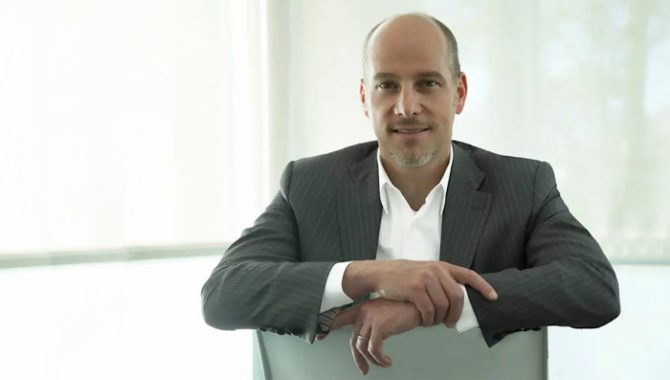
Entertainment entrepreneur Andrew Pascal reveals what makes Tetris magic… And how the game can grow
Thank you so much for making time! It’s very good of you…
My pleasure.
We’ve got a great deal of ground to cover with you, Andrew, because I want to talk about your work on Tetris, but – for context – we really need to explore your extraordinary background first. So… In terms of where to start, I do want to describe you as an entrepreneur. That scarcely does it justice, though. How would you describe yourself?
I think that’s probably an apt description. I do kind of fancy myself an entrepreneur, having done three startups – four if you include my most recent stint in Las Vegas… With that, I partnered up with an extraordinary entrepreneur, Steve Wynn. Steve is largely credited with establishing the modern-day Las Vegas. But I think what’s unique about my career is that I’ve really lived two professional lives…
How so?
I’ve maintained a foot in the technology world, or technology enabled content, and with the game companies I’ve created. That’s a passion of mine that started very early on; growing up in San Francisco. And then I’ve spent the other half of my career in more traditional hospitality – helping to design, build and operate these large, integrated resorts.
“What we’re always trying to do is deliver moments of joy.”
I do find it fascinating that you started in Las Vegas hospitality. How did you get into that?
When I was at university, I spent my summers in an internship in Las Vegas working for the Golden Nugget, which was really Steve Wynn’s first company. It was the winter of 1989 – just prior to the building and opening of The Mirage… The Mirage is largely credited with bringing about the whole renaissance here in Las Vegas.
Because of its scale; its spectacle?
Right. It was just an incredible time. Steve Wynn had an idea for a different paradigm, model and way of not just capitalising on the existing market, but really expanding and building an entirely new one. And everyone thought he was crazy and it wasn’t going to work – and, of course, it did.
As he proved it out, it opened up the capital markets and the opportunity for a lot of other very big, bold entrepreneurs to come into this market. So throughout the Nineties and into the early two thousands, Las Vegas was a place that became known for its dynamism. It was just constantly changing.

Literally and figuratively…
Literally and figuratively; yes. Every time people came to Las Vegas, there was something extraordinary and unimaginable to experience. And it was really cool to be around that. What I recognised during the cycle of that was that most of the energy was focused on building these really fanciful resources. There wasn’t, though, a lot of innovation on the content of them.
And when you say “the content”?
I mean the games that people were playing were largely the same. The slot machines really hadn’t evolved all that much, and certainly the table games hadn’t.
Got it!
So I felt there was an opportunity for us to really advance the core content of that industry. This idea resonated with Steve. He allowed me to do that within what was then Mirage Resorts as a platform. We built a whole portfolio of proprietary games that – to a game – outperformed everything else that was on our casino floors. And it was really with that insight and experience that I decided to move back to the Bay Area where I grew up to help found, scale and grow a company called Silicon Gaming.
Aiming to do what?
Silicon Gaming was really focused on reinventing the slot-machine experience and tapping into all the amazing technology that existed at that time in Silicon Valley… Figuring out how to bring that into our industry was very complicated because of the regulatory overlay. So we did everything: we had to change statutes and laws to accommodate our technologies, then go build everything about the product and the experience that we wanted to deliver… From the hardware and the underlying operating systems to the applications that ran on top of them.
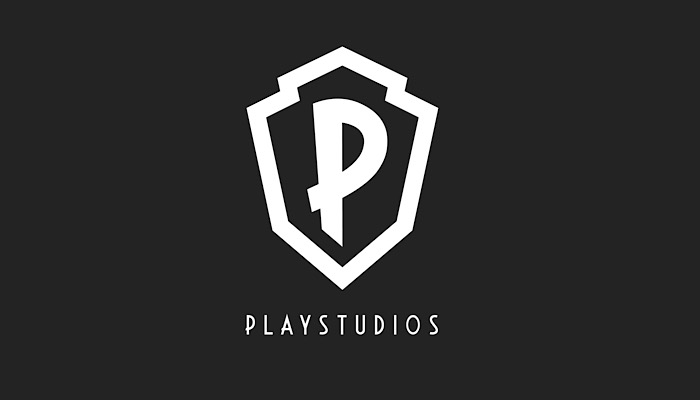
So they really were the first games that created what is now ‘state of the industry’… Video-based games, large format, touchscreen displays with multiple games that you could choose from networked experiences, branded game experiences…
Which would have been completely revolutionary then…
It really did enable us to bring about a whole new wave of innovation in casino content creation. If you go into casinos today, the games are incredibly deep, rich and immersive. They’re not what most people think of as slot-machine experiences. So that was super fun.
And how, then, did you come to found PlayStudios, Andrew?
We founded the company in early 2011… If you can think back to that time, Facebook had emerged as this incredible platform for connecting people. And it was games that were driving its proliferation and growth. People were engaging in gameplay at rates and levels that were just unimaginable. Hundreds of millions of people were engaged in playing these free-to-play, social-game experiences. But there was a moment when I came to realise that
the experience of Las Vegas could very naturally find its way onto Facebook, as a platform and as a channel, and then ultimately onto mobile devices as well.
That doesn’t strike me as an obvious thought!
Well… You know, gambling games are inherently very popular, universally. A lot of people may not admit to it, but most people participate in – and really enjoy – some form of game of chance. What I saw was that Las Vegas was really the world’s first social game experience. I mean people come to Las Vegas – which is an abstracted reality…
An abstracted reality?
Yeah. People convert real-world currency into an abstracted one in the form of chips and tokens. Then they go engage and play. And as they demonstrate their loyalty in their willingness to engage in the experience, there’s this world of services that reveals itself to you. What’s remarkable about Las Vegas and its designs is the layers and the texture that exist in the experience…
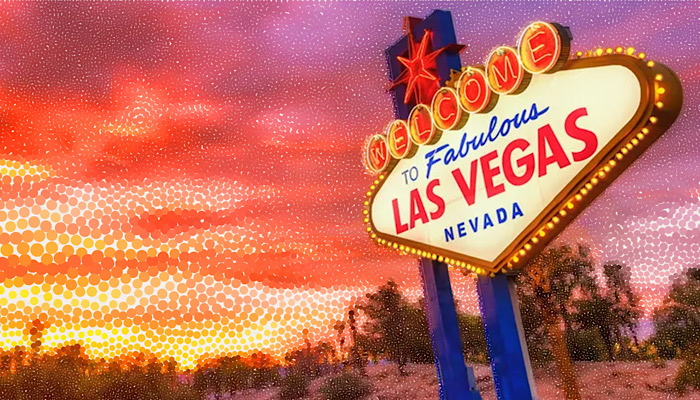
What a transient consumer experiences walking into a casino resort is a fraction of what exists and what’s available there. And the more you engage and consume and play and demonstrate your value, the more of these services and levels of accommodation and special events and programming, things that you’re invited to, start to reveal themselves.
Right. You’re unlocking levels!
So I started to ask myself, “what are the more popular products that are working on these new social platforms?” And profiling them, I found they had a very similar framework, or architecture and design. It felt like so much of my Las Vegas experience – which is an intensely competitive market – would translate. So that was the genesis, and we secured the exclusive rights to maybe 80% of the most iconic brands that made up Las Vegas. We then developed this incredible, really immersive game experience called myVEGAS… First on Facebook, and then ultimately on mobile phones.
And just so I can orientate myself, what were some of those brands?
MGM Grand, Bellagio, the Mirage and Treasure Island; Luxor, Mandalay Bay, Excalibur; New York, New York… All these brands that people know of and associate with the Las Vegas experience, we secured the rights. Then we went and built this virtual Las Vegas experience on Facebook, and it just resonated. But the unique thing about it was that it wasn’t just a game…
No?
It was the full experience – as you played the game, you’d actually accumulate status and value that you could redeem for real-world benefits… Not just advance yourself within the cycle of the game experience! You could actually unlock, go to and enjoy real-world benefits and rewards. And so that, as a model, is totally unique to us. And, quite surprisingly, we’ve been live with it in the market for over 10 years – but we’re still the only ones that do it in a full-feature, comprehensive way.
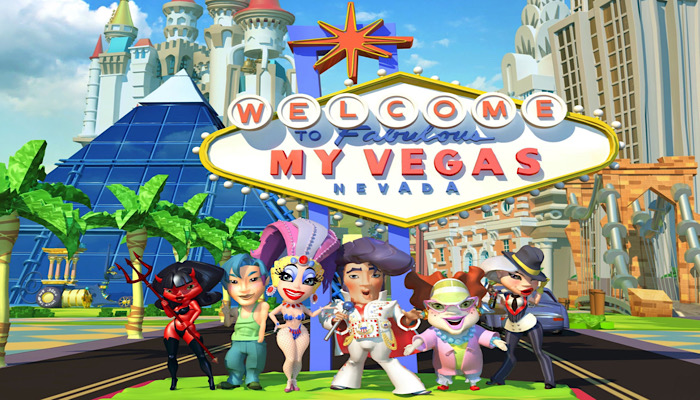
Walk me through it, Andrew; how did it go?
So when you started playing the game, you’d play slot machines, for example; you’d accumulate attributes for different resorts. Then you could go and assemble your own version of Mirage… Now you had your own little virtual strip, populated by all your friends off your social graph. And you could see everybody walking around like, “There’s Deej…” Then I could go point and click on you, and I could send you gifts, and you could send me gifts, and I could see all the things that you enjoyed doing within our own little virtual Las Vegas world. And so that’s what we built, and it seemed to work.
Because the social element lifts it; rounds it out…
Right – and as you engage with the game, more people start to realize: “Wow, I can actually go to Las Vegas; I can enjoy everything from a free buffet to actually choreographing the music at the fountains of Bellagio as an aspirational reward…” Like, is this real? And then all these studies and stories started to emerge in social posts. And, okay, you may not think that this is real because it’s too good to be true, but it is like, “Play this game.”
It’s an awesome game, but in the course of enjoying it, you’re amassing these real-world benefits…
Right – they’re real. And the whole experience of it has integrity. So those are the things that we imagined when we conceived the company. And that’s the value that we think we’ve delivered.
It’s interesting to watch you talk, Andrew, because you really come alive discussing it. I can sense your passion about this. So let me ask you: what lessons from your earlier days stood you in good stead when you moved industries?
You know, there’s one overriding theme and lesson… It’s all about the consumer. In our case, that means it’s all about the player. So we must never lose sight of the fact that what we’re trying to do is deliver moments of joy to a player – deliver these experiences… Whether it’s in an eight- or ten-minute gaming session, or whether it’s in a three-day vacation experience that they may not have been able to afford for themselves otherwise. So what we deliver are these leisure experiences.
That’s the guiding light…
Yes – that’s what should guide all the decisions we make. And, you know, it’s easy to get overly excited about creative and innovative ideas that won’t necessarily fit or resonate, things that won’t make that kind of impact for the consumer. So, you know, in traditional leisure or hospitality industries, that’s what it’s all about.
Also, you have to connect with the consumer in a way that leaves them knowing you genuinely care for them. Because you put so much energy into the experience of the place, but fundamentally what drives their connection to it are the people. So establishing and maintaining that focus on the consumer, and establishing what feels like a very personal and authentic relationship with them is just so fundamental. And so that’s what I learned in the leisure and hospitality industry – and tried to bring into the culture at PlayStudios.
Brilliant. So now… In terms of getting there – when your team’s looking to create a game, I mean – where do you start? How do you go from, “Alright, we’ve got to do something” to “This is what we’ve done!”?
That’s a really great question… In most cases it starts with doing a lot of research – focusing on the consumer, on the player. What experiences are they engaging in that seem to be really of the moment? Right? So you just do a lot of research and then apply your own creativity and originality. Then – all of a sudden – you’re engaging with one another.
From that engagement, you find there’s this dynamic that starts to make its way into the conversation of the exchanges… Exchanges where ideas just start to flow – and there are no bad ones! You just put them all up on – well, a whiteboard in the past, a Nobo board today, so it’s just all there. And people are sharing and seeing and evolving the ideas.
Open up the thinking… And to narrow it down?
You start to see, among the creative brain trust, which of those ideas seem to resonate the most. Which of them do people have the most passion for? You start to write them down. Pretty quickly, the heroes emerge. And those are the ideas that you then take through a more formal exercise of pre-developing and qualifying, and then building a plan around. Ultimately, you then choose to advance them into a more formal, disciplined development process.
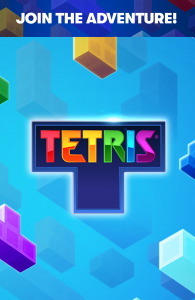 Brilliant. And always focusing on the player experience…
Brilliant. And always focusing on the player experience…
Exactly. Because it’s always about engaging people and creating a fun, safe environment where they can generate their ideas. Oftentimes, we’ll then put these ideas in front of consumers – real people – and ask that they respond. And whether it’s static images or themes or animations or rapid prototypes, there’s no substitute for getting it in front of people that represent your target consumer, and asking them: “What do you think of this?”
You mentioned the word ‘heroes’ there which naturally leads me to ask about one of the all-time-great hero games, Tetris… And it’s such a pleasure to be able to say I played this game as a kid, and I still play it decades later. And Tetris is a game of which you’re now what I would describe, perhaps, as a custodian…
That’s exactly right.
So how did you come to be in that position?
Well, first of all, The Tetris Company has an amazing story to it, which has been chronicled in a wonderful film Tetris released in late March. And the team there – headed up by Maya Rogers – the daughter of Henk Rogers – is just really incredible to work with. They’d previously been working with a company called N3twork, which was in the process of being acquired by another company. That created an opportunity for us, ultimately, to step into their position. So it’s through a stroke of good luck and fate that we find ourselves here.
And how long ago did that happen, Andrew?
We’ve been custodians of this incredible brand and game format for the last year and a half. And we’ve been optimising the game as well as conceiving of and creating a collection of games that we think ultimately will unlock the Tetris brand’s full potential on mobile.
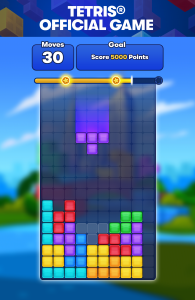 A collection of games?
A collection of games?
Right. Because Tetris has been played by hundreds of millions of people
over the course of – as you’ve highlighted – decades. But it’s not necessarily found its footing in every respect on mobile. So we’re thinking about what other executions of it have potential.
We’re pretty excited about a variety of different approaches that we’re taking and testing to see if we can not only tap into the nostalgic connection but also demonstrate that it can be updated to embody all the things that really drive the popularity of mobile games today so that it feels really current and relevant.
Well, you’ve said some tremendously tantalising things there… Ha! Can you give us a taste of what’s to come?
Well… I’ve talked a little bit about it without getting overly specific! First, I’d say that the core mechanic of Tetris is just so elegant and proven. That in itself is magic. You know, there aren’t a lot of game formats that have achieved the kind of universal appeal that Tetris has. You might look at Match-Three, which you could say was pioneered by Bejewelled Blitz, and there might even be a predecessor to that. But it didn’t really get popular and achieve scale until King adopted it and applied a story to that game format, and a rich set of characters and a saga-progression map.
The core game was great, but there was greater potential around it?
Right. And that meta mechanic was really what drove long-term progression and status that created social pressure, live events and activities that made the game dynamic… All these fresh, new missions and challenges.
So there’s a history in the mobile games industry where you have these really proven, successful game formats, tons of them – even Solitaire and Bingo… They took the core game format and wrapped around it an interesting narrative and story, and then applied these mechanics that promote long-term progression and social engagement and keep it fresh and dynamic through their live operations, events, daily missions and challenges…
They added all of these things that really create the incentive and the motivation for a player to not only engage fundamentally in the core of the experience – which in this case would be Tetris – but also to have a whole bunch of other reasons to stay engaged and play more frequently and share and promote it to their friends and compete with other people for status.
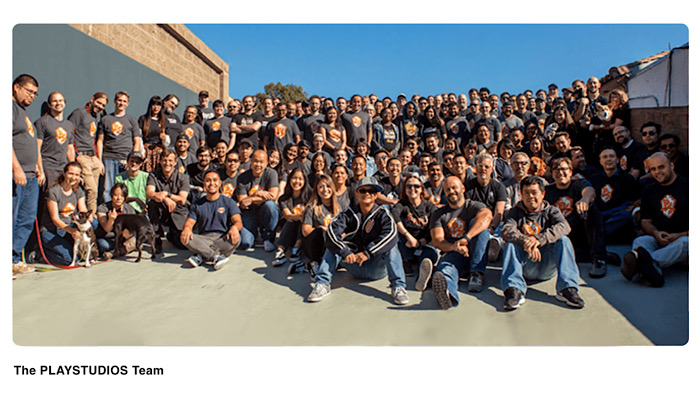
And rewards, in your case.
Yes, to amass and accumulate rewards and benefits that they really want and can take advantage of. And so that’s what we’re doing. We’re taking Tetris as a game format and applying stories, characters, meta features and all kinds of mechanics, power-ups and things that create really interesting gameplay dynamics that we think will make it even more relevant and appealing and exciting for a mobile-game player.
Fantastic. You used the word magic to describe Tetris there, and I’ve often heard it described as addictive. In your opinion what is it – fundamentally –that makes Tetris magical and addictive?
It’s easy to play, impossible to master.
Oh, I like that! Easy to play, IMPOSSIBLE to master! I really like that. You know it’s impossible, but you feel you can do better. So you just keep keep trying…
Yes, you keep trying. And you start introducing the notion that there’s this massive community of Tetris players, all in pursuit of mastery and looking to demonstrate that they’re better than everybody else. I think it just drives people’s long-term engagement and interest in it. But at the same time, if you’re trying to appeal to the first-time player, they don’t feel disadvantaged because they don’t understand the game.
No, you get it in one glance!
Exactly! So they engage in it and play it and, as they do, they feel like they’re just progressively getting better. Then, as they get deeper into the experience and start to become more expert, the game becomes really interesting. That’s at its core. Then, capitalising on that with things that amplify some of those really deep emotional connections and motivations… Like you want to progress and you want to demonstrate – among the community – that you’re of a certain status.
 I guess it’s one thing to break your own personal best, but quite another to see how that ranks with others – just like in an arcade…
I guess it’s one thing to break your own personal best, but quite another to see how that ranks with others – just like in an arcade…
You also want to get past certain milestones and moments in the cycle of the game experience. And the only way to do that is to amass and accumulate certain powerups and things that can help you get past that intense moment of friction. So those are the elements that help achieve what I would characterize as super scale… They have that similar quality of being relatively easy to engage with and start playing, but really difficult to feel like, “Okay, I’ve got this mastered; I’ve done all the things that I want to do within this game experience to feel satisfied.”
And just balancing that with the innovation, Andrew, let me ask you this… When you’re looking to bring freshness to the Tetris experience, how do you do it without – well – losing the core? How do you make sure you only ever bend the brand, never break it?
We do it by maintaining a very close relationship with The Tetris Company. The people within that company know the game and the brand better than anybody else. And while they do a lot to impart their brand values and standards and the things that are the religion of Tetris, there’s just no substitute for treating them like part of the team and honoring all of that experience.
The dynamic is such that they’d let you know when you were going too far?
Right, which I appreciate in that dynamic. And I think what they appreciate about us is that we’ve come forward with some fairly innovative and radical ideas. But they’re very clear about which things we need to be mindful and respectful of and which might be pushing things a bit too far.
So they’re open to experimenting, but very in tune with the core and the essence of the Tetris brand and its values. That helps everything stay authentic but ultimately enhances the brand, its equity and its value over time.
Which would be generally true, wouldn’t it, with the right partnership? With the right licensor and licensee?
Yes, finding the right licensor is essential. You need a licensor that thinks about it that way and is willing to partner with you and dedicate time to help you succeed. And here, that’s what makes Tetris such an amazing partner.
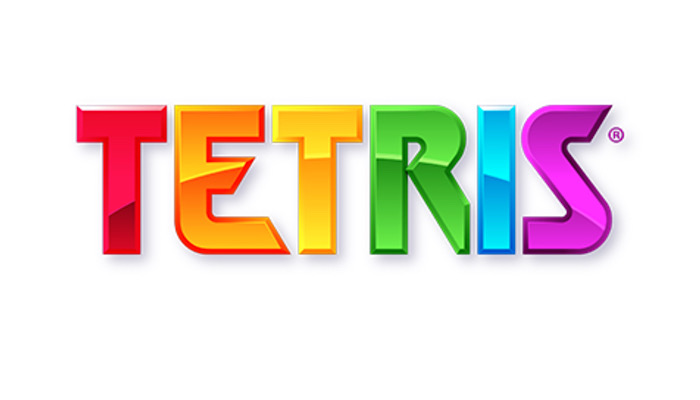
And does it help, do you think, that Tetris is still a family business? Does that make a difference?
I think it does, yes. I mean… The founders and the family have been stewards of the Tetris brand and game for 40 years, and they’re still there – still very active. I absolutely think that matters. And in this particular case, it’s easier for us to be more free thinking and open and creative because we have them engaged in the process. It’s amazing.
Terrific! To wrap things up, Andrew, what’s the one question I could have asked you today, but didn’t?
Maybe, “What’ll PlayStudios look like as a company in three to five years?”
And what would it look like in three to five years?
I think what’s unique about our company – and it’s not surprising given my background – is that we occupy a space between the worlds of digital and destination entertainment. And we’re going to continue to exploit that by becoming more vertically integrated.
So in three to five years, I imagine having a company that has a much broader portfolio of games of our own design, or that we publish from third parties, or that we’re partnered with. All of which will take advantage of this really robust and rich loyalty platform; with this ever-expanding collection of award partners globally, so that people can find with us the games they love, and take advantage of rewards they want that are local and regional to where they are.
That’s a great vision!
Thank you. I think it’s a hard model to replicate because it’s a marketplace-based model. But there’ll be a moment in time where we just reach kind of this escape velocity! And there’s all kinds of game companies that already exist today that want to adopt our program… All kinds of merchants of leisure companies that want to participate in our marketplace, or in our rewards program as a channel for acquiring new consumers and more deeply engaging them.
So I think what you’ll find is a far more grown-up version of ourselves; one that really breaks out and demonstrates just how compelling our model is.
Lovely. And to facilitate that, should any of our readers be thinking, “My God, we don’t need to wait three to five years. I’ve got the keys to the door right here!”, what’s the best way to approach you?
They can just reach out directly or through our websites and social channels and pages! There’s always a place where they can submit information and requests and we certainly always love feedback. And if people have inspired ideas, we’re happy to listen.
Great answer. I’ve enjoyed this, Andrew; thank you again.
Enter your details to receive Brands Untapped updates & news.